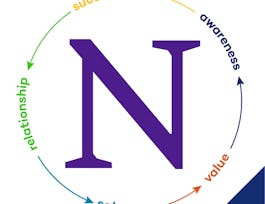Welcome to Understanding Memory. Someone once said that memory is fascinating because sometimes we forget what we want to remember, sometimes we remember what we want to forget, and sometimes we remember events that never happened or never happened the way we remember them. I want to show you how memory works, why it sometimes fails, and what we can do to enhance it. Based on my recent book – Memory and Movies: What Films Can Teach Us About Memory (MIT Press, 2015) – I will provide an introduction to the scientific study of human memory by focusing on a select group of topics that hold widespread appeal.


Understanding Memory: Explaining the Psychology of Memory through Movies
Taught in English
Some content may not be translated
116,649 already enrolled
(2,191 reviews)
Skills you'll gain
Details to know

Add to your LinkedIn profile
5 quizzes
See how employees at top companies are mastering in-demand skills


Earn a career certificate
Add this credential to your LinkedIn profile, resume, or CV
Share it on social media and in your performance review

There are 5 modules in this course
Human memory involves a collection of systems that enable us to remember the past and imagine the future. Films can enhance our understanding of memory by telling us stories about people, illustrating how their present was shaped by their past and how, by watching their stories, we might navigate similar situations in our future.
What's included
5 videos1 reading1 quiz
Memory’s main purpose is to facilitate future thinking. But to plan successful future actions, effective strategies for learning and retention are needed. Some strategies are highly effective for producing long lasting memories, others are not.
What's included
6 videos1 reading1 quiz
Each of us has a life story based on our personal experiences. These autobiographical memories define us and make us unique. But in telling our life story, we have reconstructed a personal narrative, much like a memoir writer. These recollections are generally accurate, but our memories are never a perfect record of the past.
What's included
6 videos1 reading1 quiz
Amnesia has often been portrayed in film as resulting from a bump on the head and cured by another head bonk. In real life, amnesia can follow physical or emotional trauma, it may be temporary or permanent, and if it resolves, it is never from another blow to the head.
What's included
5 videos1 reading1 quiz
Changes in memory can occur as we get older. Some changes are normal, whereas others might signal the onset of Alzheimer’s disease or some other form of dementia. Memory loss is worrisome, but there are effective ways to help maintain memory function as we age.
What's included
5 videos1 reading1 quiz
Instructor

Offered by
Recommended if you're interested in Psychology

University of Colorado Boulder

Northwestern University

Universiteit Leiden

Alfaisal University | KLD
Why people choose Coursera for their career




Learner reviews
Showing 3 of 2191
2,191 reviews
- 5 stars
78.73%
- 4 stars
16.88%
- 3 stars
3.24%
- 2 stars
0.63%
- 1 star
0.50%
New to Psychology? Start here.

Open new doors with Coursera Plus
Unlimited access to 7,000+ world-class courses, hands-on projects, and job-ready certificate programs - all included in your subscription
Advance your career with an online degree
Earn a degree from world-class universities - 100% online
Join over 3,400 global companies that choose Coursera for Business
Upskill your employees to excel in the digital economy
Frequently asked questions
Access to lectures and assignments depends on your type of enrollment. If you take a course in audit mode, you will be able to see most course materials for free. To access graded assignments and to earn a Certificate, you will need to purchase the Certificate experience, during or after your audit. If you don't see the audit option:
The course may not offer an audit option. You can try a Free Trial instead, or apply for Financial Aid.
The course may offer 'Full Course, No Certificate' instead. This option lets you see all course materials, submit required assessments, and get a final grade. This also means that you will not be able to purchase a Certificate experience.
When you purchase a Certificate you get access to all course materials, including graded assignments. Upon completing the course, your electronic Certificate will be added to your Accomplishments page - from there, you can print your Certificate or add it to your LinkedIn profile. If you only want to read and view the course content, you can audit the course for free.
You will be eligible for a full refund until two weeks after your payment date, or (for courses that have just launched) until two weeks after the first session of the course begins, whichever is later. You cannot receive a refund once you’ve earned a Course Certificate, even if you complete the course within the two-week refund period. See our full refund policy.


